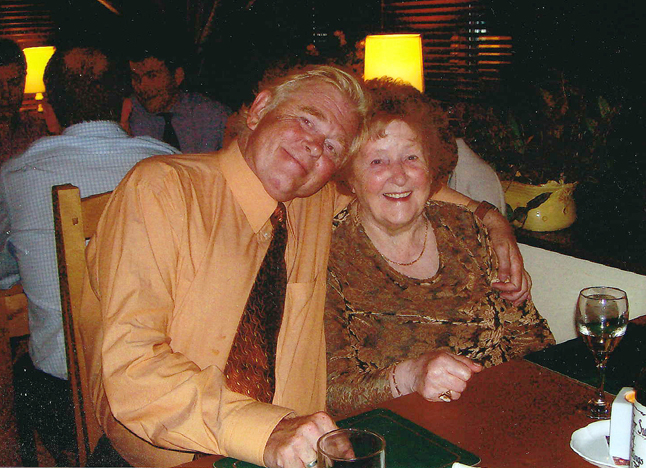Author’s note:
I offered to write this column for David Rooney many weeks ago, but the words would just not come. What follows is not an essay on Hamlet’s famous soliloquy although you may recognize some common themes.

As some people know, I live with a bi-polar disorder commonly known as manic depression.
A major contributing factor in being unable to write about this before now was my inability to recognize at an early enough stage that I was in a manic phase. You may wonder why my close friends fail to warn me when I am becoming manic. It is a good question, the fact is they do, but I fail to hear them. I have even given them code words, but I just don’t hear them. It is only on the monthly visit with my psychiatrist that I am able to recognize the characteristics of my manic behavior
The symptoms are similar in most circumstances: rapid speaking ahead of one’s thoughts; an inability to account for money spent; offensive remarks; gaps in memory; low tolerance towards another’s points of view; and broken promises.
Then there is another part of being manic, which I thrive upon: creativity. This is where I have new, often innovative concepts that defined my career and now help others to identify new perspectives on various challenges, especially in metal health.
Depression is the major threat to my leading a balanced life and this is what I primarily want to discuss.
I said I would allude to Hamlet again. Anyone who saw the play a few months ago will remember the fear with which Hamlet posed that question to himself. As those words of the soliloquy were spoken, I wanted to curl up in a tight ball as tears ran down my cheeks. Of course, I didn’t want anyone to see me and instead of phoning Mental Health for help, I just toughed it out until my next visit, a few days later. Now, although I made it through the next few days, my mind was in torment.
Meditation helped me, but I didn’t have to go through this alone. I avoided people as I could and hid my torment from my friends. It is not logical, is it? To me, though, it seemed perfectly logical.
At the tender age of nine I attended my first psychiatric hospital…
Since I was a young boy I have lived with a mood disorder. At first my mum thought I just lost my temper and she punished me accordingly. Then both Mum and Dad recognized I had terrible headaches following the strange mood swings. They were quite naturally very worried and turned to our family doctor for advice. Thus, at the tender age of nine, I attended my first psychiatric hospital as an outpatient. I visited a psychologist once or twice a week according to my mood swings. Now this was 1953-1958. Thinking about those times from today’s perspective, it was probably embarrassing for Dad to explain why he needed time off each week . He was a wonderful man and my best friend until his death. And although he loved me deeply, he didn’t really understand my depressions. My mum, on the other hand, did have a better grasp of manic depression and I have to be careful now what information I give her as she is 91.

Therefore, in my formative years I grew up trying to keep my mood swings secret. Of course, that was daft because teachers had to know. My real trouble at school were other boys who delighted in provoking me into violent mood swings which, on two occasions, caused me to attempt suicide. Neither time was very serious, but it did cause them to stop because they thought I was nuts.
Consequently when I became an apprentice in a hair salon, I had become quite successful at hiding my depressions, although the manic side did rear its ugly head from time to time. My boss knew of my manic depression and often would suggest I take a couple of days off, rather than be disruptive in the salon.
As my career took off, so did my manic depression. Also a strange form of “suicide” began to be a foreseeable event. Just when i was achieving a goal of excellence or another form of success, I would then destroy all I had worked for by walking out of the salon over something quite trivial. For many years I didn’t understand that. In fact, now that I think of it; it was quite recently that it was pointed out to me. First I’d have a period of sustained work at a very high creative level, which could continue for weeks. Then, I would suddenly crash into a deep depression. I couldn’t understand why suddenly no one would listen to me, why my ideas were rejected. I turned that around to tell myself they were rejecting me, Peter. Because of this thinking, I regarded myself as no good. So I would run away and hide from everyone. On many occasions, I would try to change my identity and disappear. Of course, as I write this for you, the reader, it seems obvious: I was trying to disappear from myself, which we know is impossible.
Can you imagine what it is like to hate yourself?
Can you imagine what it is like to hate yourself? Can you imagine that, despite all of the people you know and love you? And despite all your family’s love, you still feel they will all be better off if you were dead? Then what if I told you that doesn’t even come close to how you feel? Can you imagine, then, after having your medications changed and you feel more desperate than ever before and then hear someone ignorantly say, ”suicide is a coward’s way out?” Let there be no doubt — to survive this will probably be the bravest thing I will ever do, and survive I will because I want to get well as I have promised my doctor, my psychiatrist, three friends, my daughter (a young girl who means more to me than life itself), my mum and sisters and finally myself.
There is something else I think I need to say. Twenty-five years ago I had just come home from UBC psychiatric wing. My wife who had little understanding of depression sat me in front of the TV so that I could watch Rick Hansen end his Man in Motion Tour. I remember feeling like a complete failure as I watched, since, several weeks before I had attempted to end my life. As I watched this hero, instead of feeling encouraged by his great achievement, I hated myself more and longed to die. Fast forward to this year and the tremendous achievements of our own hero, Tyler Smith. His courage has helped me face my own life challenges and it is my sincerest prayer that others who live with this debilitating disease hang on to the belief that they are not alone and that help is only one phone call away.
Mental Health at Queen Victoria Hospital — 250-814-2241
The Crisis Line (24-hour service) — 250-837-6601
Peter Waters is a local actor and contributor to The Revelstoke Current



